Array Multiplication Teaching Resources
Teaching about array multiplication this school year? Explore printable worksheets, fun games and more teacher-created resources to help students learn to use this multiplication strategy to solve tough math problems!
Aligned with both TEKS and Common Core math, the resources in this collection have been designed with both your lesson plans and students in mind, so you can skip the time you'd spend creating resources and dive right into the thing you love most — actually teaching! Explore printable and digital activities and games, plus editable options that you can easily differentiate for your students.
Is this your first year teaching students how to use arrays in multiplication, or are you just looking for some handy tips for teaching this strategy? Read on for a primer from our teacher team!
How Do You Teach Multiplication Using Arrays?
Arrays have been used by mathematicians for more than a century, and there's a fair amount of evidence that they're truly helpful for young learners as they break down complex multiplication into simpler, more manageable parts.
Likewise, an array is a good way to reinforce the commutative property of multiplication.
But how do you actually teach students to use arrays successfully? Read on for a helpful definition, activities and examples to use with your class!
What Are Arrays in Multiplication? A Kid-Friendly Definition
Do you need a way to explain arrays to your students? Here's a handy script to use with your students!
An array is a way to organize groups of objects into equal rows and columns.
When we use an array, we create horizontal rows of numbers and vertical columns of numbers. This allows us to visualize how multiplication represents combining or grouping elements.

How to Use an Array in Multiplication
So how does this work? Let's look at an example of how to use an array to solve a multiplication problem.
Let's say you have the problem 4 x 3.
To solve this using an array:
- Create four rows with three dots in each row.
- Count the total number of dots to find the product.
The answer to 4 x 3 is 12, which is the total number of dots in the array.
Fun Ways to Use Array Multiplication to Engage Your Students
This collection is chock full of array activities to use in the classroom, but we didn't stop there! Here are some fun ideas from our teacher team to help your students understand how to use arrays to find the product of a problem!
Use Non-Traditional Manipulatives
The more wacky the manipulative, the more engaged your students tend to be. You can use small food items such as crackers, or why not hit the dollar store for some plastic bugs?

Create Array Cityscapes
Turn your multiplication arrays into an art project! The neat rows of an array work perfectly to create windows in little skyscrapers, for example, which makes for a beautiful hallway bulletin board showing off all your students have learned!
Make it Colorful
Pull out the colored pencils or colorful markers, and challenge students to turn their arrays into rainbows!
- Plus Plan
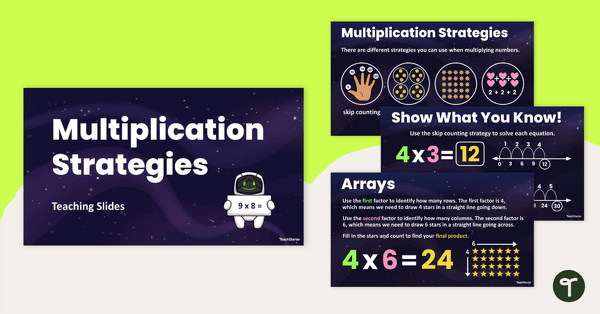
Introduction to Multiplication Strategies Teaching Slides
Introduce your students to different multiplication strategies such as arrays, equal groups, repeated addition and skip counting with this 34-page slide deck.
- Plus Plan
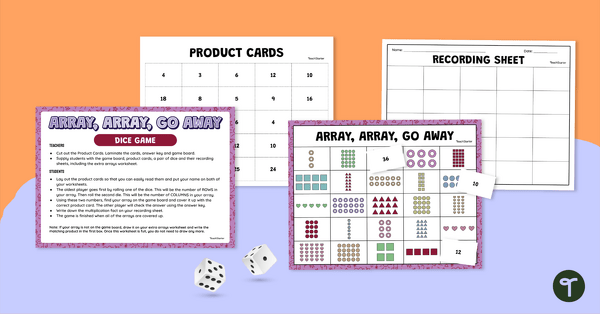
Array, Array, Go Away Dice Game
Reinforce how to match arrays and multiplication facts with this printable dice game.
- Plus Plan
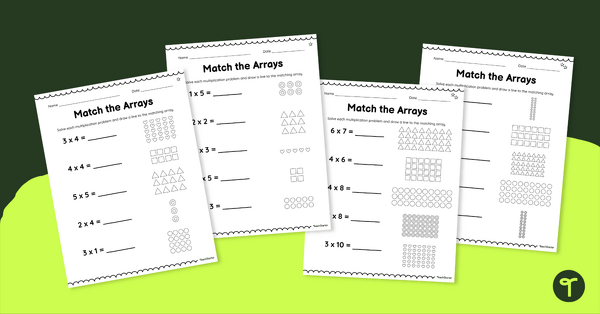
Match the Arrays Worksheet Pack
Give your students practice matching arrays and multiplication facts with these math worksheets for 2nd and 3rd grade.
- Plus Plan
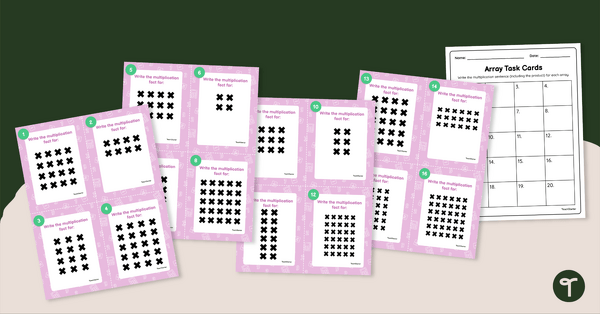
Multiplication With Arrays Task Cards
Practice multiplication with arrays using this set of 20 task cards in a variety of ways.
- Plus Plan
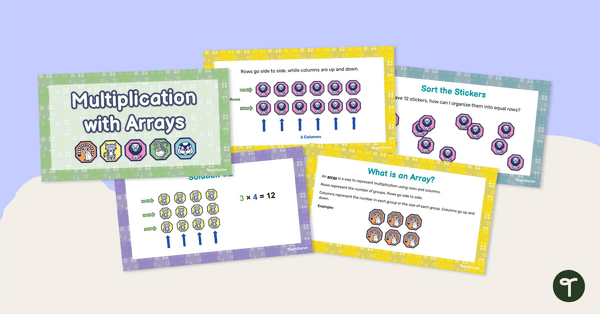
Multiplication With Arrays Teaching Slides
Teach your students how to connect multiplication with arrays with this 16-slide teaching presentation.
- Plus Plan
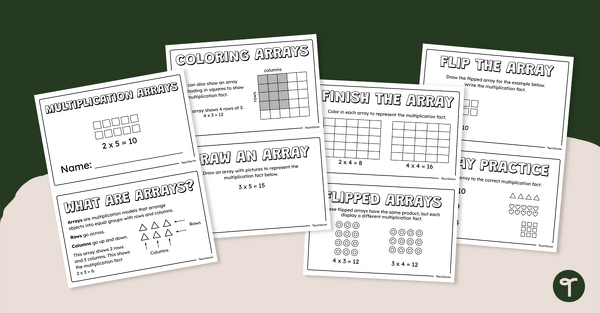
Multiplication Arrays Mini-Book
Teach your students about multiplication and array models with this printable mini-book.
- Plus Plan
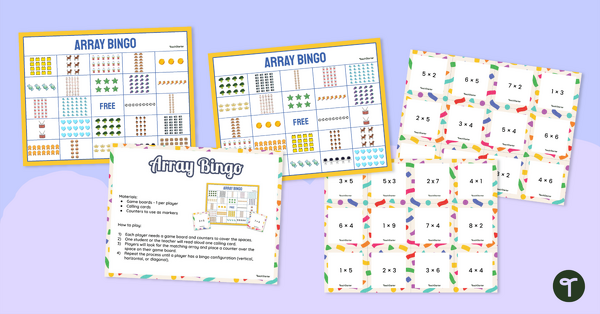
Multiplication With Arrays Bingo
Review how arrays and multiplication facts are related with this whole-class Bingo game.
- Plus Plan
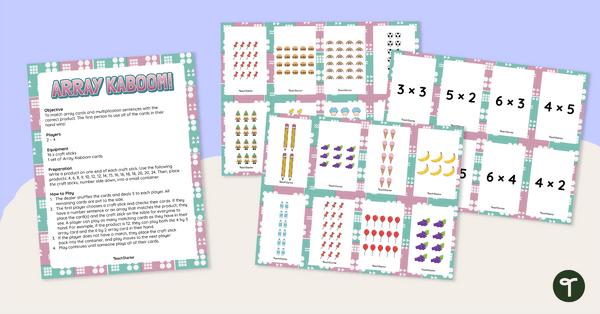
Array Card Kaboom!
Boost your students’ understanding of arrays and multiplication with this engaging Kaboom card game.
- Plus Plan
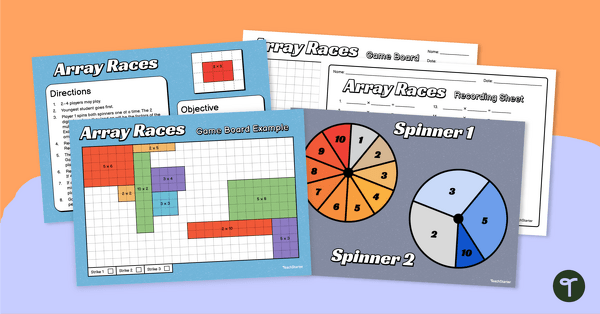
Array Races Multiplication Game – Facts 2, 3, 5, and 10
Create arrays to fill the board with this fun multiplication game.
- Plus Plan
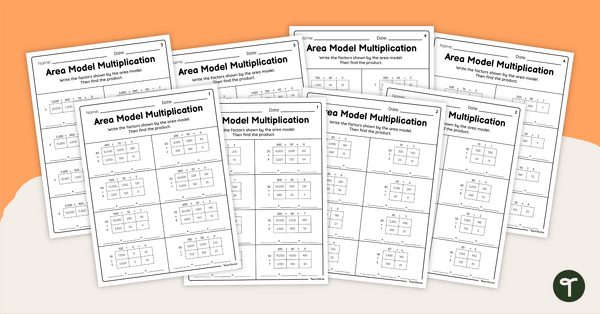
Area Model Worksheets for 4th Grade
Teach your students how to determine factors and the product of an area model with this worksheet pack.
- Plus Plan
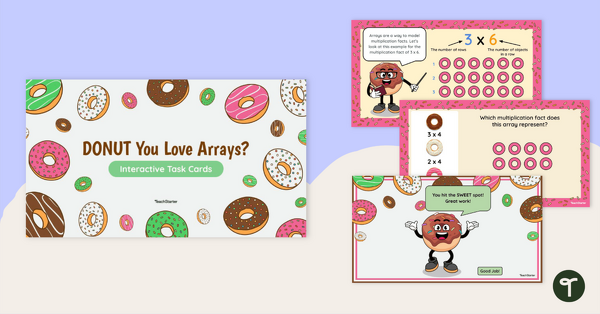
Donut You Love Arrays? Interactive Task Cards
Help your students relate multiplication facts and arrays with this set of 24 interactive task cards.
- Plus Plan
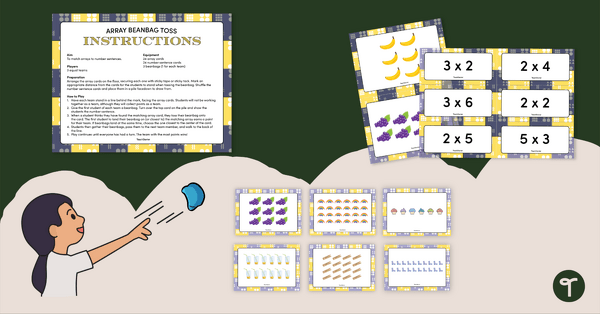
Array Beanbag Toss
Engage your students with a fun, whole-class game when learning about arrays.
- Plus Plan
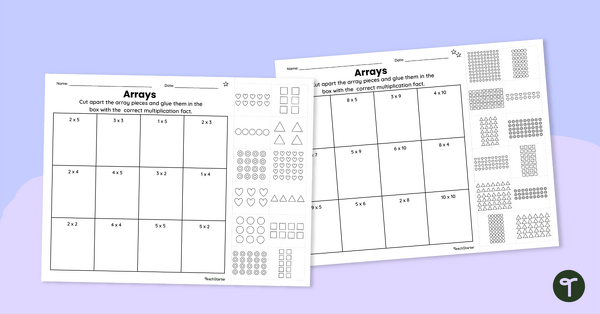
Cut and Paste Array Worksheets
Guide your students to match arrays and multiplication facts with these cut-and-paste worksheets.
- Plus Plan
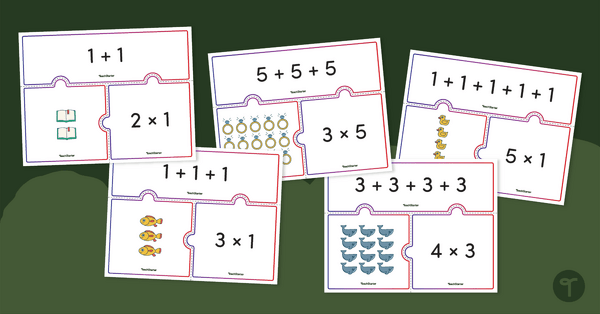
Multiplication Array Puzzles
Guide your students to match arrays, multiplication facts and repeated addition sentences with this set of puzzles.
- Plus Plan
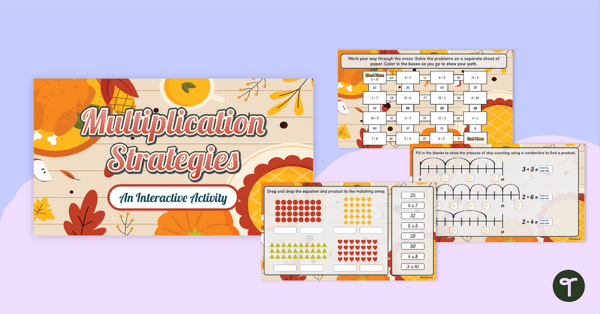
Thanksgiving Multiplication - Interactive Activity
Review multiplication strategies with a Thanksgiving Math interactive slide deck for students.
- Plus Plan
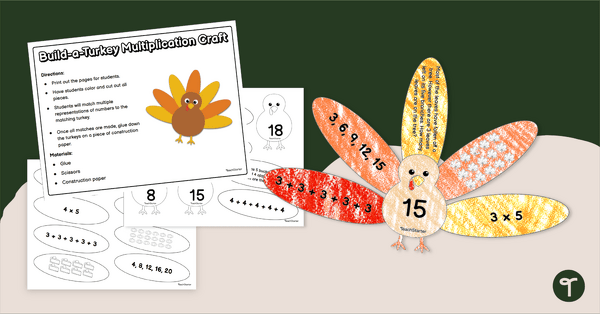
Multiplication Turkey Template - Cut and Paste
Create an adorable turkey craft to demonstrate multiplication strategies with this printable multiplication turkey template.
- Plus Plan
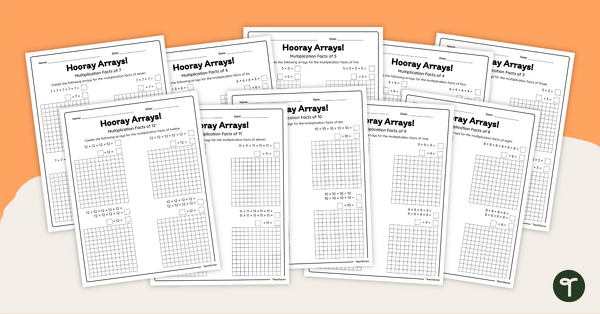
Hooray Arrays! Multiplication Worksheet Pack
Download this set of array worksheets to use when teaching your students how to relate addition and multiplication.
- Plus Plan
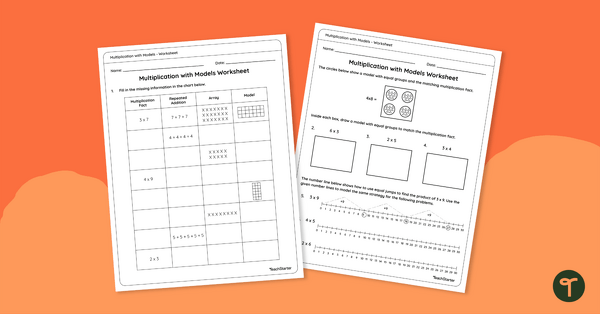
Multiplication With Models Worksheet
Guide your students to determine the product of single-digit factors with various multiplication models.
- Plus Plan
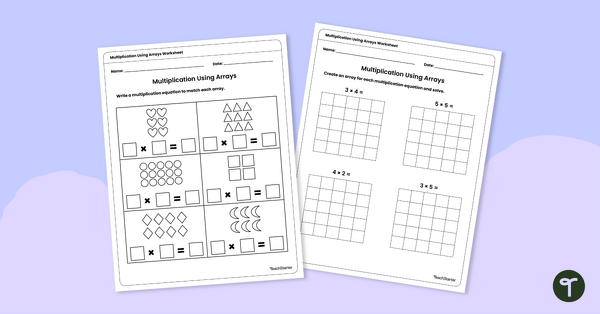
Multiplication Using Arrays Worksheet
Encourage your students to practice multiplication using arrays with this 2-page worksheet that guides them to build arrays and write them as multiplication sentences.
- Plus Plan
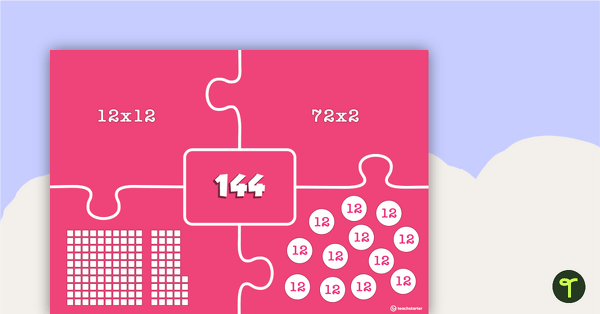
Number Matching Puzzle - Multiplication
A hands-on game to play when learning about multiplying numbers.